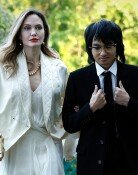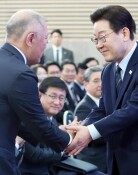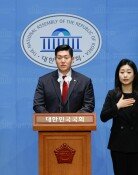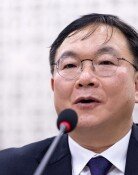[Opinion] Hunger Strike
During the dark authoritarianism era, a hunger strike was an opposition group leaders ultimate method for political resistance. In May 1983, former President Kim Young-sam fasted for 23 days in protest against his house arrest and the political regulations during Chun Doo-hwan regime. The media was strictly held under control during this period, so while this was widely reported in the foreign press, it was reported in the Korean press simply as one politicians meal problem.
In October 1990, former President Kim Dae-jung, who was then the leader of the Party for Peace and Democracy, fasted for 13 days, demanding the adoption of the local government autonomy system and the abandonment of the cabinet system.
A hunger strike is effective as a method of political resistance in the sense that it can catch the worlds attention in a short period of time. Perhaps because of this, politicians continue to fast. In November 2003, former Grand National Party leader Choi Byung-ryul fasted in protest of President Roh Moo-hyuns refusal to appoint an independent counsel in the fraud case concerning his inner circle. This March, Representative Jeon Jae-hee fasted to oppose the Special Law on the New Administrative Capital. Democratic Labor Party representative Kang Ki-kabs current fast to deter the National Assembly from passing the rice import ratification bill, has been going on for 24 days, breaking Kim Young-sams record.
This time, Representative Chung Chin-suk from the Peoples Central Party, and representatives Sun Byung-ryul and Yang Seoung-jo from the Uri Party are planning to fast. They say it is to exert pressure on the Constitutional Court, which is about to determine the constitutionality of the Special Law on the New Administrative Capital soon. They may come up with whatever excuses they want, but it is obvious that they are conscious of the upcoming elections. It is ludicrous that they are actively promoting their fasting plans through e-mails and text messages.
Fasting was originally for religious self-discipline or health care. Fasting for a political purpose is no longer valid. Fasting was touching in a time when free speech was strictly regulated, but it is not effective anymore. Neither will it solve political or social problems. But representatives are still trying to turn the National Assembly into the Yeouido Fasting Center, and failing to evolve. To stop such anachronistic acts, we might as well come up with an anti-fasting law.
Song Young-eon, Editorial Writer, youngeon@donga.com







